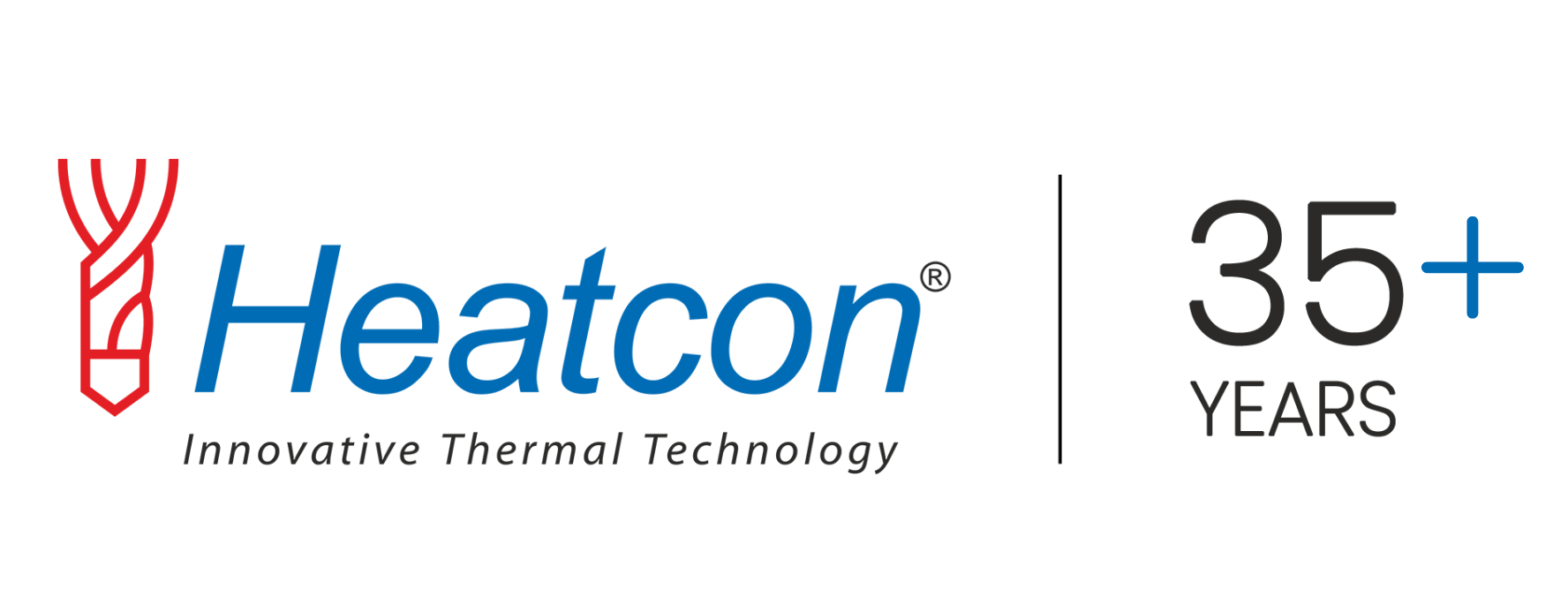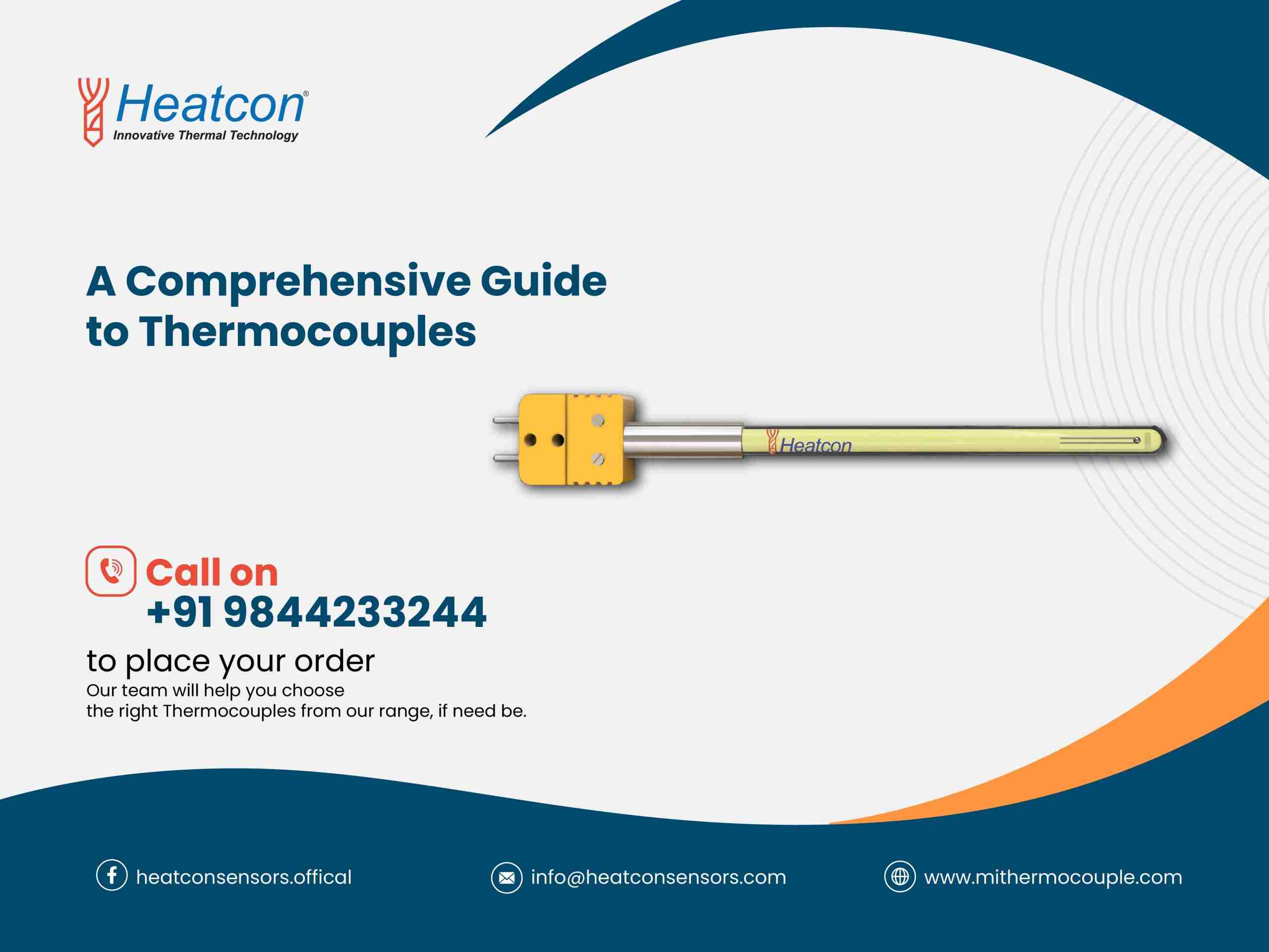Guide to Temperature Sensors: Thermocouple Types and Applications
Thermocouples happen to be fundamental temperature sensors that are utilized widely across various industries for measuring different temperature ranges. Their versatility, reliability, and durability make them indispensable in applications ranging from industrial processes to scientific research applications. Understanding the types of thermocouple and range available today and how to select the right one is crucial for accurate temperature measurements. So, here’s a quick Guide to Temperature Sensors.
Understanding Thermocouples: A Comprehensive Overview
In the realm of temperature measurement, thermocouples happen to be those vital tools that stand out as versatile, durable, and widely used sensors. They function on the principle of the Seebeck effect, wherein a voltage is generated by the junction of 2 different metals in response to the temperature variations.
Types of Thermocouples
There are types of thermocouple and range, each suited for specific temperature environments. we also offer various heating solutions, including high-density cartridge heaters designed for efficient heat transfer.
B-Type Thermocouples
B-type thermocouples are often utilized in high-temperature environments. Designed with a platinum-rhodium alloy (PtRh30-PtRh6), these B-type thermocouples cater to extreme high-temperature scenarios, measuring up to 1700°C, making them suitable for applications in the chemical and semiconductor industries. They also excel in industries like aerospace, semiconductor manufacturing, and certain laboratory applications.
R-Type Thermocouples
R-type thermocouples feature a platinum-rhodium alloy (PtRh13-Pt) and can endure temperatures up to 1600°C. Known for their high accuracy & good stability, they are commonly found in laboratories, industrial settings, and refining processes etc. Despite the accuracy, these R-type thermocouples tend to become highly reactive at temperatures that are above thousand-degrees and could turn out to be easily contaminated. So, their accuracy & stability are better used in low-temperature activities like in sulfur recovery units etc.
S-Type Thermocouples
Similar to the R-type thermocouples, these S-type thermocouples tend to employ a platinum-rhodium alloy (PtRh10-Pt) and withstand high temperatures. They are primarily employed in high-temperature applications measuring up to even 1600°C. Their applications span metalworking, metal refining ceramics, medical industry, and high-temperature chemical processes.
E-Type Thermocouples
Featuring Chromel (90% nickel and 10% chromium) and constantan (45% nickel and 55% copper), E-type thermocouples cover a broad temperature range (-270°C to 1000°C). These are also very cost-effective. They are ideal for use in HVAC systems, food processing, and laboratory equipment. These E-type thermocouples have high output, faster response time & non-magnetism make. This makes them fit for use in cryogenics, aviation & flow chambers etc.
J-Type Thermocouples
Comprising iron & constantan alloys, the type j thermocouple range offers a range of j type thermocouple (-210°C to 1200°C). Their cost-effectiveness and versatility make them suitable for various industrial & household applications. So, they are commonly used in industrial applications & home appliances due to their affordability & moderate temperature range. These J-types are usually not utilised below the ambient temperatures owing to the condensation that forms on the wires as it leads to rusting of the iron. So, these have smaller temperature ranges and shorter lifespans at higher temperatures than the K types.
N-Type Thermocouples
N-type thermocouples consist of nickel-chromium-silicon and nickel-silicon-magnesium alloys. With a temperature range of -270°C to 1300°C, they offer excellent resistance to high-temperature oxidation. Owing to their resistance to high-temperature oxidation, they often find their applications in aerospace & nuclear industries. Seeing the accuracy & price point rivalling the K-types, these N-types are considered to be better alternatives to the R-types and S-types.
K-Type Thermocouples
One of the most widely used thermocouples, a range of k types of thermocouples utilize Chromel & Alumel alloys. They boast a wide thermocouple k type range of (-270°C to 1372°C). They are extensively suitable in manufacturing, automotive, and HVAC systems. This is due to their wide temperature range & reliability. While these might be accurate, they still need recalibration for temperatures around & above 750℃. Noble metal types happen to be the alternative if corrosive resistance tends to be the primary concern. These are reliable, cost-efficient, & accurate with a wide temperature range.
T-Type Thermocouples
Composed of copper & constantan alloys, T-type thermocouples cover a temperature range from -270°C to 400°C. They are quite stable and work best between -59℃ to 370℃ (-75℉ to +700℉), which makes them the best bet for low-temperature laboratory processes such as cryogenics & ultra-low freezers. These T-types are consistent with measurements that are between -200℃ and 200℃. These are also decomposition-resistant! So, being corrosion-resistant, the food industry, pharmaceuticals, and HVAC applications commonly use these types.
Selecting the Best Fit for Your Specific Need!
Types of thermocouple and range serve as indispensable temperature sensors across a wide array of industries. Understanding the different types types of thermocouples available and selecting the right one for your application is crucial for precise temperature measurement and control. Accurate temperature measurement significantly impacts the efficiency and safety of processes across various industries. Therefore, making an informed choice regarding the appropriate types of thermocouple range is essential. Selecting the appropriate thermocouple involves considering several factors, which are provided underneath:
- Temperature Range: It is important for you to first determine the range of measuring temperatures.
- Environmental Conditions: Considering the environment, and accounting for certain factors such as corrosive atmospheres, high vibration areas, and humidity etc holds crucial importance while selecting a thermocouple.
- Accuracy & Precision: Some thermocouples offer higher accuracy & stability than others. You need to see which one fits your bill!
- Cost & Durability: Balancing your budget constraints with the lifespan & reliability needed for your specific application is a crucial deciding factor for thermocouple selection.
In conclusion, thermocouples play an integral role in temperature measurement across numerous industries. Understanding the different types available and selecting the right one for your application is essential to achieve accurate & reliable temperature readings.
Contact Heatcon Sensors for Your Thermocouple Needs
Choosing the right thermocouple for your specific application is crucial for accurate temperature measurements. With a wide array of thermocouple types and ranges, With a vast array of thermocouple types and thermocouple temperature ranges available, making the right choice can be challenging. This is where partnering with industry experts like Heatcon Sensors can make a significant difference. Heatcon Sensors, can ensure you select the most suitable sensor for your needs. Heatcon’s expertise in temperature measurement technology can help you reach out to the best product, ensuring optimal performance & reliability. When it comes to selecting the right thermocouple for your specific application, Heatcon Sensors can help you hit the bull’s eye! So, contacting experienced professionals of Heatcon Sensors can ease the process, ensuring you find the perfect thermocouple to meet your specific requirements. Remember, accurate temperature measurement is critical in numerous industries, and the right thermocouple choice can make a significant difference in the efficiency & reliability of your processes.


